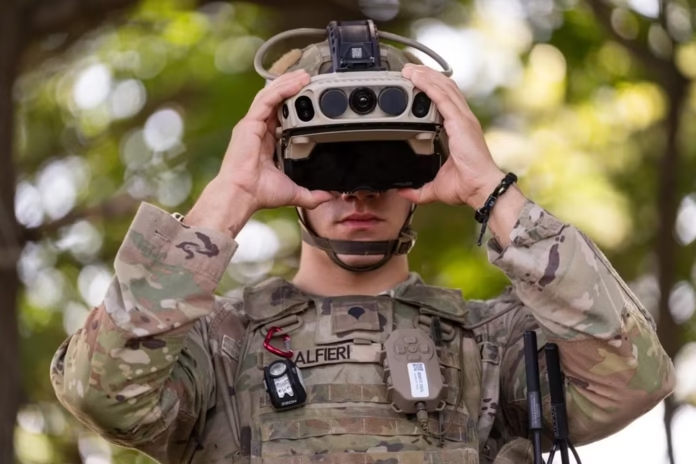Meta is working with defense contractor Anduril to build advanced virtual reality (VR) and augmented reality (AR) headsets powered by artificial intelligence. The goal is to provide the U.S. military with new technology that improves battlefield awareness and decision-making.
On May 29, Anduril revealed that the headsets will use its AI-driven command system, the Lattice platform. This system gathers data from thousands of sources and delivers real-time battlefield intelligence to soldiers. The headsets will offer “enhanced perception” and “intuitive control of autonomous platforms” during missions.
Anduril said this new tech will change how soldiers see, sense, and interact with battlefield information. The immersive devices aim to boost tactical decisions in combat. Private capital funded the project. The team plans to adapt commercial technology for military use.
Meta, formerly Facebook, began investing in VR and AR technologies in late 2021. Since then, it has spent about $40 billion to develop its vision of the metaverse. This experience now supports its military technology efforts.
Palmer Luckey, co-founder of Anduril and Oculus VR, shared on X (formerly Twitter) that the partnership is a key step toward his goal of turning soldiers into “technomancers.” He said the first public product from the partnership will be EagleEye. Luckey hopes EagleEye will become the Army’s new Soldier Borne Mission Command system.
Microsoft initially won a contract in 2018 to build AR headsets for the military using HoloLens. However, earlier this year, Microsoft announced that Anduril would lead the project. Microsoft will continue to provide cloud services.
The U.S. military is also working closely with other tech firms. Last November, Meta allowed defense agencies to use its Llama large language model for national security. Around the same time, AI company Anthropic gave the military access to its Claude 3 and 3.5 models for Palantir’s AI platform on Amazon Web Services.
Additionally, Palantir and Microsoft joined forces in August to offer AI services and analytics to U.S. defense and intelligence agencies. These collaborations highlight how tech giants are helping to advance military capabilities with AI and immersive technology.
For more tech updates, Visit DC Brief.


